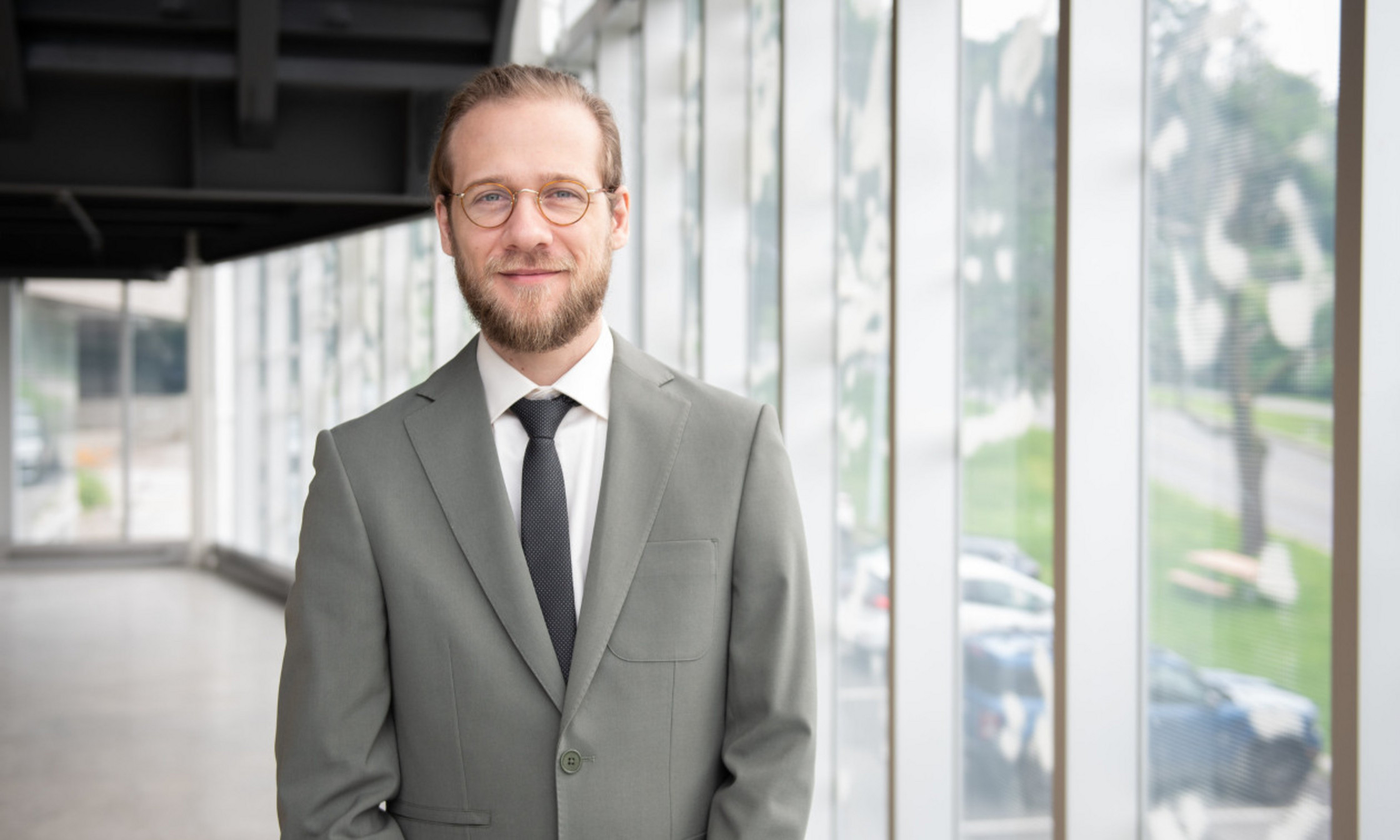How free are we?

‘No one does wrong voluntarily’
Tremblay’s first degree was a bachelor’s in philosophy at Université Laval, during which he became fascinated by the question of freedom, broadly speaking. “How much free will do we have after we factor in all the genetic and environmental causes underlying our behaviour?” he wondered. That, he realized, is the dilemma at the heart of the notion of freedom.
Tremblay continued his studies in philosophy, this time at UdeM, completing his master’s in 2014 on the notions of voluntary versus involuntary acts as set out in the writings of Plato. His goal? To understand what Plato’s teacher Socrates meant when he said, more than 2,500 years ago, "no one does wrong voluntarily."
Even back then, Tremblay’s interests lay at the intersection of philosophy and criminal law—notions of fault, responsibility and blame. His master’s work led to an interest in the homicide law of the Athenian legislator Draco, written in 621 BCE.
What is freedom? Are we free or are our actions determined by a host of causes beyond our control? How much responsibility do we bear for our actions? At what point do we become responsible for our actions under the law?
These are just some of the fundamental questions that Ugo Gilbert Tremblay has explored throughout his academic career and continues to explore after joining Université de Montréal’s Faculty of Law last March.
“It started in CEGEP when I developed a passion for several different branches of knowledge,” Tremblay recalled. “Then it became clear to me that university was where I could nourish this passion.”
“And now that I’m a professor,” he continued with a laugh, “I’ll never have to leave!”
Neuroscience and criminal responsibility
A turning point in Tremblay’s career was the case of Guy Turcotte, the Quebec cardiologist accused of killing his two children in 2009. In 2013, while Tremblay was working on his master’s thesis, he analyzed in detail the Quebec Court of Appeal’s decision that annulled the first verdict in Turcotte's case and ordered a new trial. His vocation for criminal law confirmed, Tremblay met Pierre Poupart, Turcotte’s lawyer, who went on to help shape his thinking.
That experience also inspired Tremblay to arrange joint doctoral studies in law at UdeM and philosophy at the University of Geneva. At the same time, he took courses to consolidate his legal training, receiving his Certificate in Law from UdeM in 2018. When he graduated in 2020, he had the unique distinction of having both a Ph.D. in philosophy and a Doctor of Laws.
In his doctoral research, Tremblay examined the notion of criminal responsibility in today's age of neuroscience. His work focused on how advances in our understanding of the brain are challenging the very foundations of responsibility in criminal law. In 2021, his dissertation took top prize for best doctoral thesis in all of Canada in the humanities and social sciences category. In May 2023, it was published in book form by Les éditions Thémis.
‘Listen to the other side’
Now that he is an assistant law professor, Tremblay intends to continue his reflections on a number of hot-button issues, including the impact of neuroscience on the debate around hate speech. “The many intersections of science and the law are a central theme in my research,” said Tremblay, who was recently appointed co-chair of the newly created Collective France-Québec Research Chair on Freedom of Expression. “My work explores the conflicts that emerge between scientific revelations and the principles underpinning and structuring our laws.”
Tremblay is also a dedicated teacher. When he teaches “Criminal Law 2” this fall, he hopes to not only pass along in-depth knowledge on criminal law to his students, but also stimulate the curiosity of future lawyers about all the questions that the law has never definitively answered. His vision of teaching accords a central place to intellectual humility and the need to explore all facets of a problem, all while scrupulously adhering to the famous dictum Audi alteram partem.
“This principle, which means ‘listen to the other side’, is not only fundamental to legal systems, but also a cardinal rule in research,” noted Tremblay. “The beauty of the law is that there can be dissenting opinions in a criminal case and we can study these. They show how the best legal minds can arrive at different conclusions for the same problem.
“It forces us to stay humble,” he concluded.



